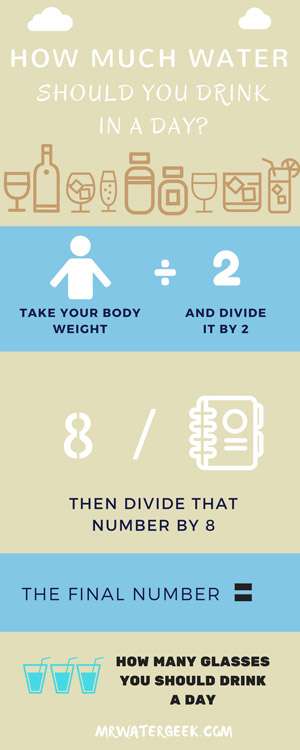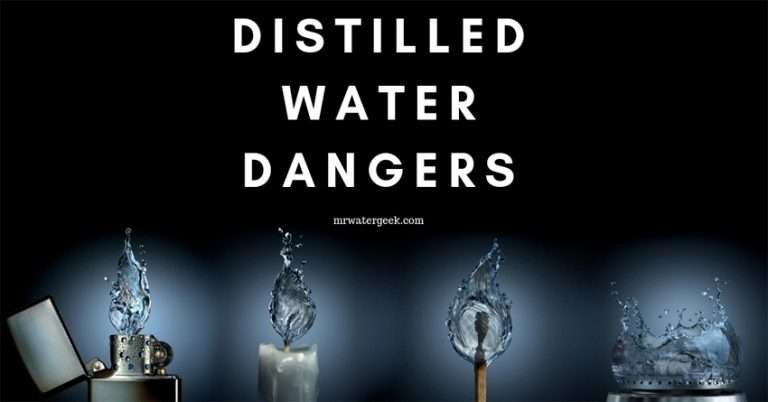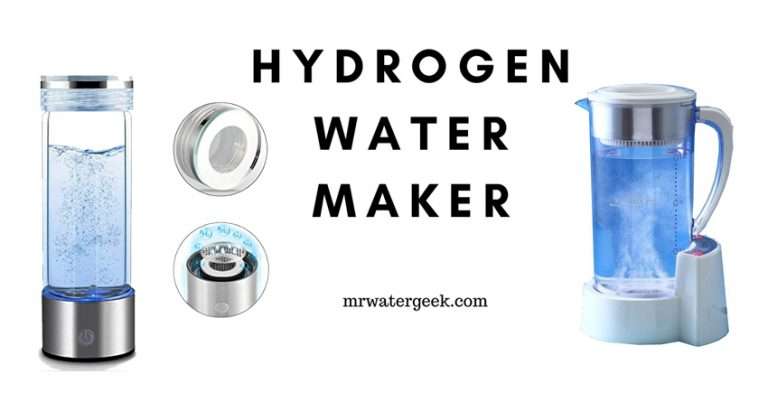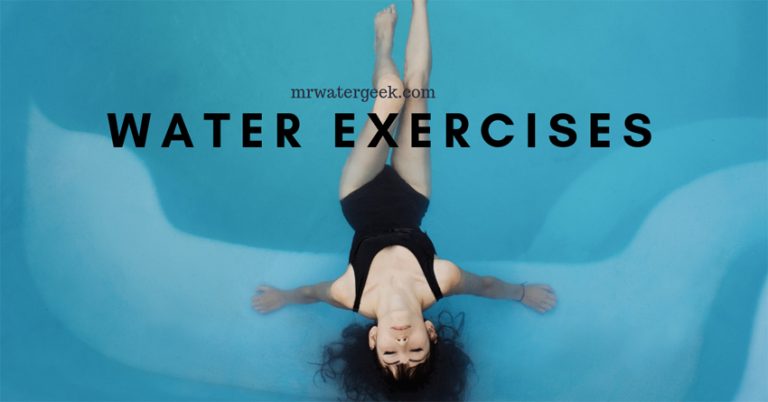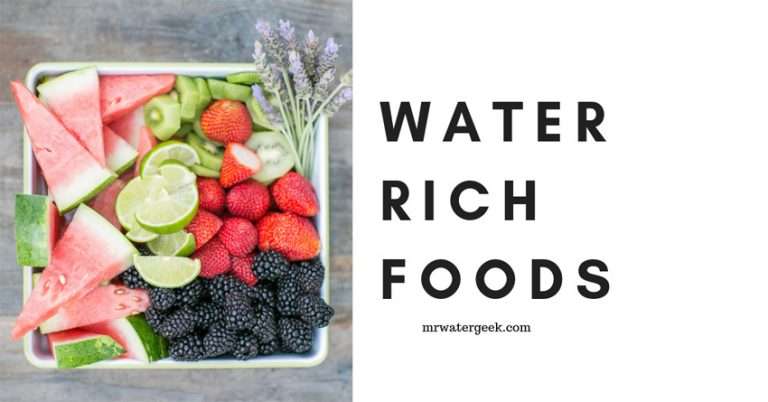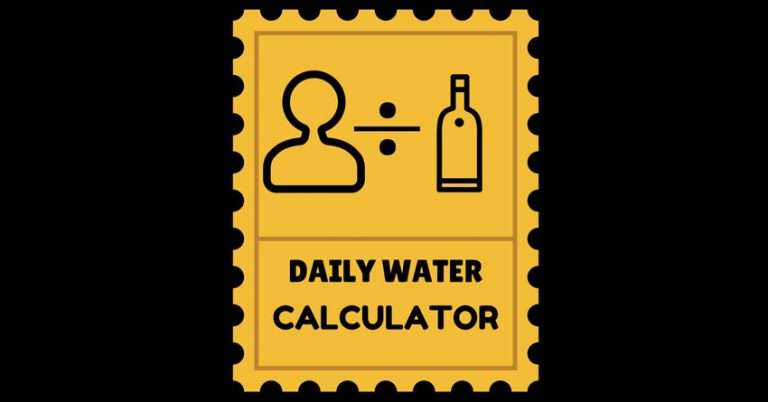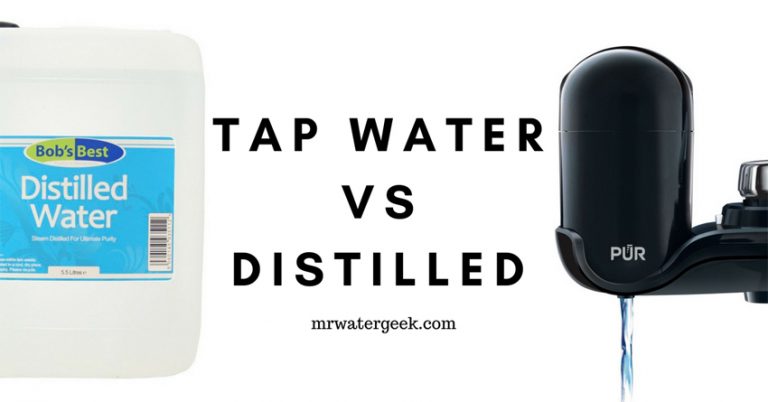What Happens If You Drink Too Much Water?
What Happens If You Drink Too Much Water?
Over-hydration or hyponatremia is usually caused by over consumption of water in a short amount of time.
Athletes are often victims of over-hydration because of how difficult it is to regulate water levels during extreme physical activities. 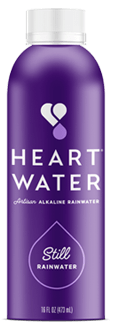
Can you die from drinking too much water?
Yes.
While you are over-hydrated, sodium electrolytes in the body become diluted causing cells to swell.
In severe cases the kidneys can’t keep up with the resulting volumes of water.
This leads to water intoxication, potentially causing headaches, vomiting and in rare instances seizures or death.
Drinking too much water is called “hyponatremia”
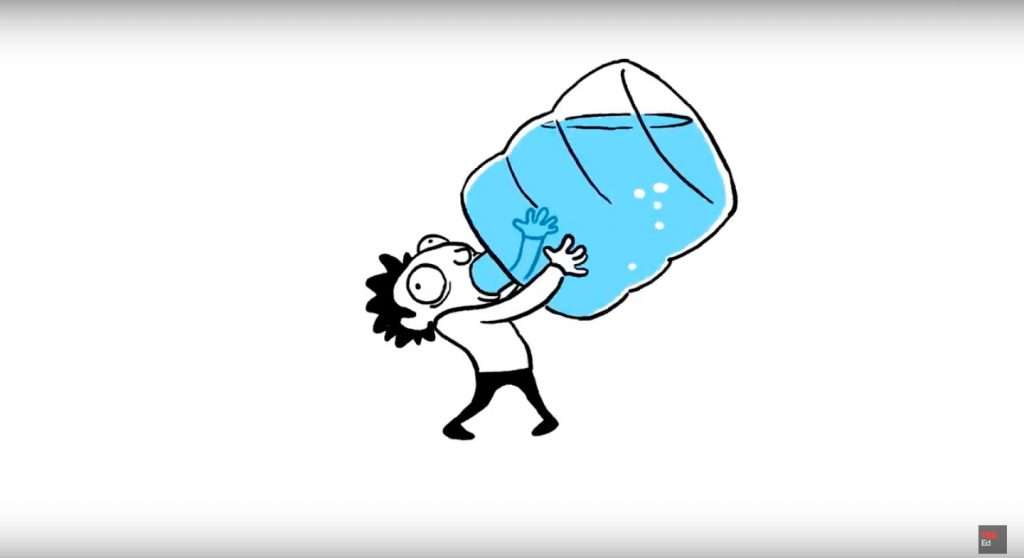
In essence the answer to the question: what happens if you drink too much water? Is that it could ultimately lead to death.
But that’s a pretty extreme situation. Maintaining a well hydrated body is easy to manage for those of us fortunate enough to have access to clean drinking water.
For a long time, conventional wisdom said that we should drink 8 glasses of water a day but that estimate has since been fine tuned.
Now the consensus is that the amount of water you need to drink depends largely on your body weight and environment.
The recommended daily intake varies from between 2.52 – 3.7 litres of water for men and about 2.2 – 2.7 litres for women.

The range shown in the picture above is pushed up or down if you are healthy, active, old or overheating.
While water is the healthiest hydrator, other beverages, even those with caffeine like coffee or tea replenish fluids as well.
And water within food makes up about a fifth of your daily h20 intake. Fruits and vegetables like strawberries, cucumbers and even broccoli are over 90% water and can supplement liquid intake while providing valuable nutrients and fibre.
About This Post
This post will tell you everything you need to know about what happens if you drink too much water and it’s largely based on a TED animated cartoon.
Original lesson by Mia Nacamulli, narration by Addison Anderson and animation by Chris Bishop. The talk ‘cartoon’ is also called “What Happens If You Drink Too Much Water?” – Mia Nacamulli”>
Water Is Everywhere…
Water is virtually everywhere from soil moisture and ice caps to the cells inside our own bodies.
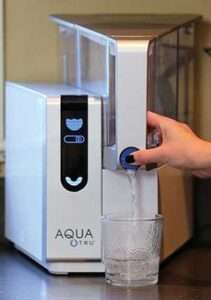 Depending on factors like location, your fat index, age and sex – the average human being is between 55 – 60% water.
Depending on factors like location, your fat index, age and sex – the average human being is between 55 – 60% water.
At birth, human babies are even wetter because they are 75% water.
This makes them more similar to fish but their water composition drops to 65% by their first birthday.
Babies are 75% water

What Does Water Do For The Body?
So, what role does water play in our bodies and how much do we actually need to drink to stay healthy? The H20 in our bodies works to cushion and lubricate joints, regulate temperature and to nourish the brain and spinal cord.
Water helps your joints, regulate body temperature and brain function.

Water isn’t only in our blood, an adults brain and heart are almost three-quarters (75%) water – that’s roughly equivalent to the amount of moisture in a banana. Lungs are more similar to an apple at 83% and even seemingly dry human bones are 31% water.
Your brain and heart are almost three-quarters water.

If we are essentially made of water and surrounded by water then why do we still need to drink so much? Well, each day we lose 2 to 3 litres through our sweat, urine and bowel movements. We even lose water just while breathing. While these functions are essential to our survival we need to compensate for the fluid loss.
Why Is Water Good For You?
Maintaining a balanced water level is essential to avoid dehydration or over-hydration, both of which can have devastating effects on your overall health.
At first detection, your “low water level” sensory receptor in the brain hypothalamus signals the release of the antidiuretic hormone and when this hormone reaches the kidneys it creates aquaporin channels that enables your blood to absorb and retain more water, leading to concentrated dark urine.
Dehydration impairs your body’s normal functions.
 |
 |
| Dehydration impairs your body’s normal functions. | |
An increase in dehydration can cause notable drops in energy, mood, skin moisture and blood pressure as well as signs of cognitive impairment.
A dehydrated brain works harder to accomplish the same amount as a normal brain and it even temporarily shrinks because of its lack of water.
Why Is It Important To Drink Water?
Drinking well might also have various long-term benefits. Studies have shown that optimal hydration can lower the chances of stroke, help manage diabetes and potentially reduce the risk of certain types of cancers.
Water is better than tea and coffee at hydration.

No matter what, getting the right amount of liquid makes a world of difference in how you’ll feel, think and function day to day.
Can I Give My Baby Water?
In general, a new born baby should not drink water until they are round 6 months  old. Until then, they will get all their hydration from formula or breast milk and this is the case even if the weather is hot. Once your baby is 6 months old, it is okay to let them have a few sips of water when they’re thirsty.
old. Until then, they will get all their hydration from formula or breast milk and this is the case even if the weather is hot. Once your baby is 6 months old, it is okay to let them have a few sips of water when they’re thirsty.
However, if the baby is fully breastfed then they won’t need to drink water until they have started eating solid foods. Though bottle-fed babies might need additional water in warm and hot weather.
If your baby is under 6 months old, then it is not advisable to give them tap water and if you have to, make sure you boil it first. You will need to cool down the tap water after boiling and remember that water is not sterile when it comes straight from the tap.
Water for babies over the age of 6 months does not need to be boiled.
Bottled water is not recommended for making baby formula because they may contain too much sulphate or salt (sodium).
Infographic: How Much Water Should I Drink?
Fail-Proof Ways To Drink More Water
Here are some cool ideas to help you drink more water if you struggle drinking water.
Get A Specific Daily Water Goal
Now you know what happens if you drink too much water, the next step is to avoid drinking too little water.
For in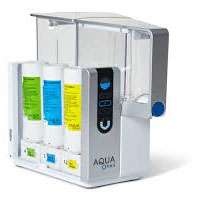 stance, maybe you are already drinking a good amount of water every day but know you need more — or maybe it might just be that you don’t drink enough.
stance, maybe you are already drinking a good amount of water every day but know you need more — or maybe it might just be that you don’t drink enough.
Whatever the case may be the first step is always to work out how much you drink on an average day and then work out how much you need.
Try to be specific as possible, so you know exactly how many glasses, cups or bottles it translates into. Use this handy daily water in take calculator to find out how much water you need.
Invest in a good water bottle — and use it
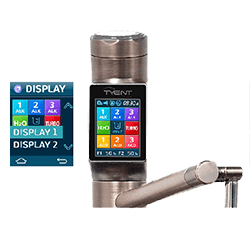 I have reviewed the best water bottles on the market, invest in a nice one that you like very much and keep it close.
I have reviewed the best water bottles on the market, invest in a nice one that you like very much and keep it close.
Studies show that you are more likely to drink water when it is in your line of visibility and near to hand.
Squeeze a drink into your daily routines.
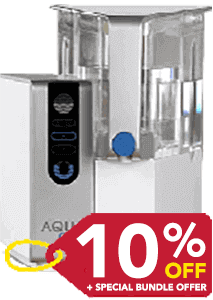 One neat little trick is to drink a full glass every time you do something that is part of your established routine.
One neat little trick is to drink a full glass every time you do something that is part of your established routine.
For example drink a glass of water right before, or after you brush your teeth, when you wake up or even before every meal.
The best thing about is that when routines are conducted over time, they become automatic.
Use A Straw In Order To Drink More Water.
Seriously, as counter-intuitive as it might sound, use a straw. It sounds so simple but it is surprisingly effective.
This is by far one of the best water drinking hacks I know. So simple and hardly costs any money.
Using a straw will make you drink faster thereby causing you to drink more water.
Be Accountable
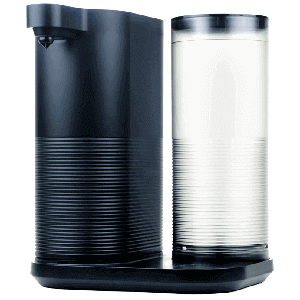 Nothing focuses the mind on achieving a new goal more than being accountable to a peer group.
Nothing focuses the mind on achieving a new goal more than being accountable to a peer group.
You could even turn this into a game and make it fun.
For instance, set up a shared calendar. Want even more of an incentive? Place a friendly bet…
Cheat With Water-based Foods.
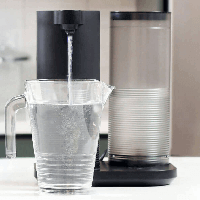 Many fruits and vegetables are high in water, some as much as 90%.
Many fruits and vegetables are high in water, some as much as 90%.
Foods like apples, oranges, cucumbers, grapefruits, cantaloupe, watermelon and banana.
All have a high water content and can help add to your overall hydration.
Failing That, Eat Something Spicy.

Spicy foods will force you to drink water (as shown in the humorous gif above) so feel free to garnish your meal with hot chili’s and peppers. Apart from making you drink more water, spicy foods also have the added benefits of boosting your metabolism.
Add Other (non-alcoholic) Drinks.
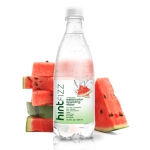 As discussed in the TED-Ed cartoon breakdown at the start of this post, you don’t just need to get your water from actually drinking water.
As discussed in the TED-Ed cartoon breakdown at the start of this post, you don’t just need to get your water from actually drinking water.
You can also get it from places like coffee and tea.
But whatever you do, don’t drink alcohol thinking it counts as water. Sadly, it doesn’t.
Make It Interesting With Sparkling Water + Fruit
Did you know that sparkling water has essentially zero calories, just like water?
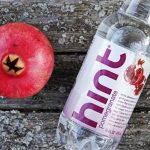 But it also gives you the feeling of drinking a soft drink and is very hydrating.
But it also gives you the feeling of drinking a soft drink and is very hydrating.
However, you might desperately need to satisfy a sweet tooth. If this is the case then add a small splash of sugar free squash into the mix.
It tastes like any can of soft drink you can find but with a fraction of the calories.
You can try something like the product below, which is 0 calories, 100% natural, easy to store and use.
Scientific References
“Hyponatremia (“Water Intoxication”)”. The DEA.org. Retrieved November 09, 2016.
Coco Ballantyne. “Strange but True: Drinking Too Much Water Can Kill”. Retrieved 22 December 2016.
Farrell DJ, Bower L (Oct 2003). “Fatal water intoxication”. Journal of Clinical Pathology. 56 (10): 803–804
Almond CS, Shin AY, Fortescue EB, et al. (April 2005). “Hyponatremia among runners in the Boston Marathon”. The New England Journal of Medicine. 352 (15): 1550–6.
Moreau, David (2008). Fluids & Electrolytes Made Incredibly Easy! (4th ed.). Philadelphia: Lippincott Williams & Wilkins. pp. 75–77. ISBN 978-1582555652.

